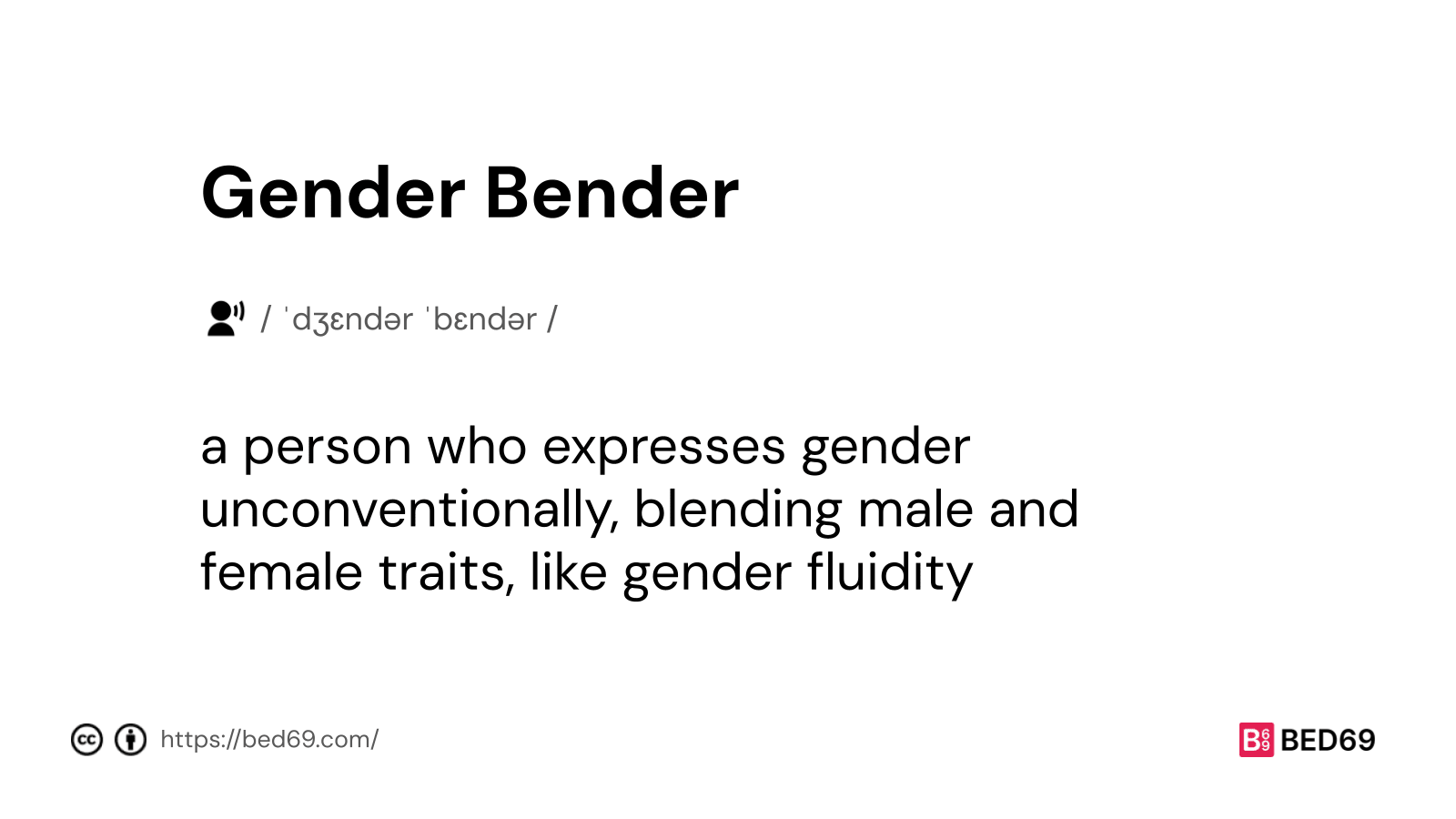What is Gender Bender?
A Gender Bender is someone who expresses gender in ways that don’t match traditional expectations. They may show aspects of both male and female genders, regardless of their biological sex or gender identity. It’s similar to being gender fluid.
Gender Bender pronunciation: / ˈdʒɛndər ˈbɛndər /

What challenges do Gender Benders face in society
Gender Benders often face challenges in society due to rigid gender norms. They may encounter discrimination, prejudice, and lack of understanding from others who expect conformity to traditional gender roles. This can lead to social exclusion, bullying, and even violence in extreme cases. Moreover, accessing gender-affirming healthcare and legal recognition can be difficult for Gender Benders, adding to their struggles. Additionally, the lack of representation and acceptance in media and public spaces can further isolate them, making it challenging to feel validated and respected in their identities.
These challenges highlight the importance of promoting inclusivity, education, and acceptance of diverse gender expressions in society. Gender Benders deserve to live authentically without fear of judgment or harm, advocating for a more inclusive and understanding world for all individuals, regardless of their gender identity or expression.
How can we support Gender Benders in our communities?
Supporting Gender Benders in our communities involves creating safe and inclusive spaces where they can freely express themselves without fear of judgment or discrimination. Educating ourselves about gender diversity and respecting individual choices is crucial. By using inclusive language and pronouns, we can show our support and validate their identities. Encouraging open dialogue and actively listening to their experiences helps build understanding and empathy.
Additionally, advocating for policies that protect the rights of Gender Benders, such as anti-discrimination laws and access to healthcare, is essential. Providing resources and support networks specifically tailored to their needs can make a significant difference in their well-being. Ultimately, by fostering a culture of acceptance and celebration of gender diversity, we can create a more inclusive and welcoming community for all individuals, regardless of how they choose to express their gender.
Explore other interesting terms:
